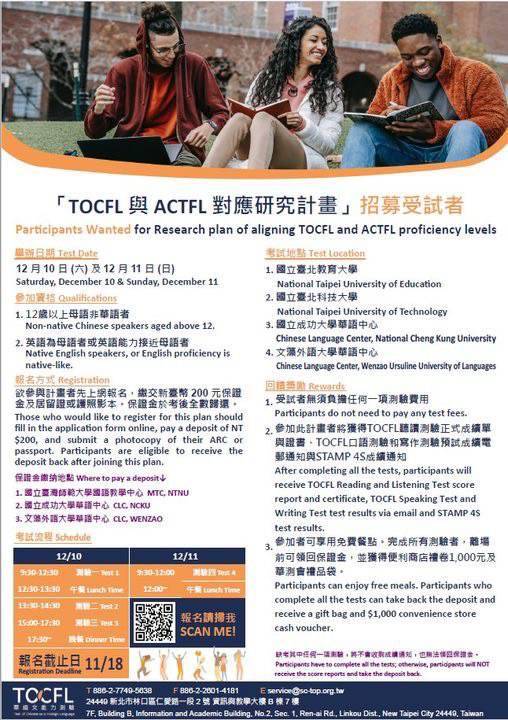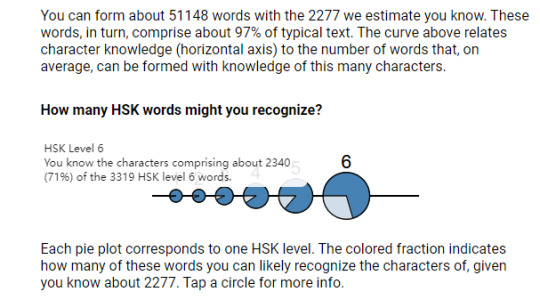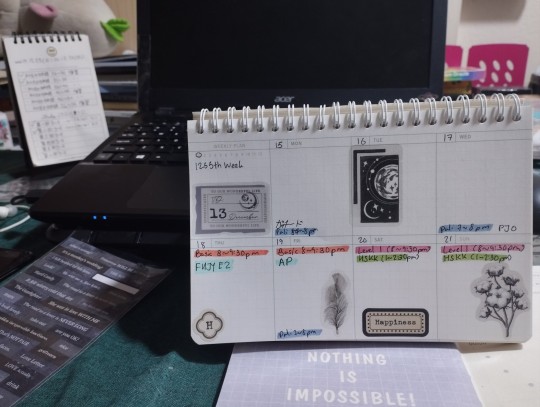#hsk 5
Text

???/100 days or productivity
(I have brain fog and can't remember)
I'm in a limbo where I'm a bit too sick to do any meaningful work but a bit too okay to just lie in bed all day and sleep so here are my notes on Chinese speaking test (HSKK Advanced) part 1.
And yes, my casual chinese handwriting looks like that. No, I'm not gonna take any notes. That being said you can tell me if you think my chinese handwriting is good or bad. Just curious.
#hskk advanced#hskk#hsk#hsk 6#hsk 5#langblr#chinese langblr#chinese studyblr#100 days of productivity#chinese language#studyblr#I'm sick and tired but my fever has gone down#I have enough energy to sit at a table not enough to do anything elae#and writing chinese characters is calming to me
41 notes
·
View notes
Text
Words with 定 (HSK3-5)
决定 (juédìng) : to decide
规定 (guīdìng) : regulations, to stipulate
肯定 (kěndìng) : assuredly, to affirm
固定 (gùdìng) : fixed, to fasten
确定 (quèdìng) : to ensure, to confirm
稳定 (wěndìng) : stable, to pacify
制定 (zhìdìng) : to formulate
否定 (fo3udìng) : to negate, to reject
生活的态度决定了我们幸福感的高低。
既然明天晚上公司会关灯停电,那么我们肯定不用加班了。
成语有固定的结构。
52 notes
·
View notes
Text







TUC @ HSK · 11.26.23
75 notes
·
View notes
Photo

Yeah, the image quality is not great, but if you’re a native English speaker in Taiwan and you want to take the TOCFL for free, now’s your chance!
#i'll be honest i signed up for band B cause i'm confident i could get a really solid 4#and with the grace of the gods and the wind blowing in the right direction i miiiight squeak by with a 5 but it feels like such a long shot#and i've seen some MA programs that only require a 4#TOCFL#fyi TOCFL and HSK levels are NOT the same
9 notes
·
View notes
Text
also i have no clue what the hell half of my roommates are doing in taiwan. mist of them barely speak and have barely studied chinese before and their only knowledge of the culture is like mdzs and jay chou. like. they all talk abt going to south korea after this and im like... why did you even come to taiwan..... you shouldve just gone to korea in the first place.
#the other one speaks like hsk 5 level chinese and knows abt the culture so i genuinely understand why shes here. but the other 3#.... go to south korea!!! get outta here!! why are u here!!!
5 notes
·
View notes
Text
estimated hanzi known 9/22/2022
https://wordswing.com/how-many-characters-do-you-know/done
This was fun, estimated I know ~2200 hanzi


I found the bottom circles interesting because they may help me figure out why my Readibu ‘what I can actually read extensively’ seems to match up to HSK 4 Comprehensible 90%+ and HSK 5 Comprehensible 80%+.
I stopped studying from HSK after 4 (of which this estimator says I know 90% of HSK 4 words). So after HSK 4, I studied new words primarily from novels and shows. This pie chart estimator puts me at 86% HSK 5 hanzi known, and 71% HSK 6 hanzi known. This seems to complement well that lower level I’m finding of competence in Readibu’s stats (I need HSK 4 90%s and HSK 5 80%s comprehensible Stats in readibu for a given novel to feel ‘easy’ to read). I’d say this estimator tool was fairly close to my real language skills. I think my actual words known is WAY smaller than 51k words lol. But I do think a lot of those 51k made up of hanzi I know would probably be words I can learn rather quickly, since I already know their hanzi. (I generally have no problems learning new hanzi and words nowadays though, I just have to see new words 2-12 times in reading and they eventually stick lol).
#hanzi#progress#rant#estimator#hanzi estimator tool#characters#characters known#but yeah this estimator matches up well with how my Readibu experience has gone (using their HSK comprehension stats)#i have found my key comfy zone seems to be HSK 4 93% and HSK 5 83%.#i think i have a lot of vocab not on hsk too though. because i can read some fantasy stuff and horror stuff quite easily that scores lower#(since they'd have less hsk terms). so yeah if its a genre i'm familiar with i have a lot of non HSK vocabulary as well#but for daily life setting novels this estimate is fairly close to my sweet spot for Extensive Reading
1 note
·
View note
Text
a very incomplete list of cdramas (plus a few chinese films) i've watched and my rating for hsk proficiencies for them below the cut!
i've watched some shows that aren't included on this list, but i didn't watch enough of them to get a good sense for the level of challenge they pose, so they're omitted from the list. i've also included links to the mydramalist pages, if you want to get a sense of the plot.
i had to remove the list format, since tumblr decided i had too many characters per block of text, so i apologise for that. a number of these can be watched on youtube with english fansubs, but if you can't find something, you can always dm me and i'll get you a link!
沙海/tomb of the sea: this fits into the extended daomu biji/grave robbers' chronicles/lost tomb franchise, but you don't have to have seen the other shows or read the books to watch it, and the pov character is an outsider who also doesn't understand what's going on 90% of the time. this show is contemporary, and you could probably start watching it at a fairly low hsk level because it doesn't have a ton of complicated technical or genre-specific terms. the subbing in english decent, since it came out a while ago, but there are some errors that crop up with names and nicknames. if you wanted to watch it without subtitles, i'd say you could probably get the gist of what's being said at around an hsk 4 or hsk 5 level. it has 52 episodes, each around 45 minutes long. (mdl link)
双镜/couple of mirrors: set in the republican era, so some of the terms used are a bit outdated in terms of colloquialism, and it also has a mystery/detective element to it, so that could pose a bit of a struggle. that said, the show isn't actually too challenging in terms of vocab—i would say you could watch it without english subtitles at an hsk 3 level with some struggle, and with a fair amount of ease at hsk 4. 12 episodes, at 46 minutes each. (mdl link)
云泽传/legend of yunze: wuxia/xianxia, which makes the amount of unfamiliar terms higher if you aren't used to the genre, but the episodes are all very short, and the plot itself isn't overly complicated, which makes it easy to sit down and watch in one go. on a level of difficulty, as long as you're familiar with wuxia/xianxia terms, you could probably watch this at an hsk 2 level without too much issue, and the subbing in english is very thorough. has multiple seasons, but the first season is 12 episodes, between 3-7 minutes each. (mdl link)
神探/detective l: this is a procedural detective show, and it's set in the 1930s republican shanghai, so there's a combination of more formal/outdated language and specialised detective/case-related phrases. the english subs are decent, though, and the actors all enunciate clearly, which helps if you need to look up words. i would say this would probably be a bit of a struggle below the hsk 5 level, but you'll pick up a lot of new, crime-related phrases. 24 episodes, 40 minutes each. (mdl link)
不良执念清除师/oh no! here comes trouble!: i'll be honest, this one was a struggle for me because of the taiwanese accent. i can understand what they're saying, it just sounds like the auditory equivalent of someone coming into my house and moving everything a few centimetres to the left. this is also a procedural show, but contemporary, so not quite as challenging in terms of vocab to detective l, in my opinion..........but it's also got a heavy supernatural element, which does come with specific vocab. the subbing is good, but if you're going to watch it, this one probably requires a higher hsk level to keep up—hsk 5, at a minimum, in my opinion. 12 episodes, 52 minutes each. (mdl link)
s.c.i谜案集/sci mystery/sci: another contemporary procedural mystery show, but from the mainland, so there's no elements of supernatural. surprisingly simple vocabulary; you could watch this at an hsk 2 level and get the gist, and an hsk 3 or hsk 4 level would let you watch it just fine. has fairly good english subs, and i believe they set the show in hk, which accounts for the higher than usual amount of english usage, up to and including in dialogue. the only bit that might make it challenging is the heavy lean into the psychology, but it's all largely explained directly, since most of the characters aren't familiar with the terms either. 24 episodes, 45 minutes each. (mdl link)
成化十四年/sleuth of the ming dynasty: ming dynasty (mid 1400s, under the chenghua emperor) setting, but a fairly colloquial vocabulary. there are some specialised titles used, but those are fairly self-evident by the way the show is shot, and easy enough to look up. the english subs are good, and i would put this at an hsk 4 level—but even at an hsk 3 level you probably won't struggle too badly. my hangup here was, again, one of the leads being played by an actor with a taiwanese accent, though it's not too heavy. 48 episodes, 45 minutes each. (mdl link)
老九门/the mystic nine: dmbj prequel, set in the tail end of the republican era (1939, if i remember correctly?). has a lot of tomb- and tomb-robbing specific vocabulary, alongside the more dated modes of speech, so i would put this up at an hsk 5 or hsk 6 level, but there's decent subs, so you could watch it at lower levels, it would just be a bit of a challenge. 48 episodes, 42 minutes each. (mdl link)
猎罪图鉴/under the skin: contemporary procedural show; there's a lot of emotion- and motive-specific words used, and the fact that it's a procedural makes it a bit more challenging, in my opinion. i would recommend that don't start with this show, just because of the fact that it's pretty easy to get lost if you don't grasp some of the vocabulary. i'd put it at an hsk 6 level, but that said, the subs are good and you can watch it at an hsk 5 level with some effort, i think. 20 episodes, 45 minutes each. (mdl link)
春风沉醉的夜晚/spring fever: honestly not as challenging in terms of vocabulary as a lot of things on this list, and fairly contemporary (set in the 2000s). i would say if you're at an hsk 4 level, you will probably do alright with it. 116 minutes in total. (mdl link)
关于我和鬼变成家人的那件事/marry my dead body: another case of struggling to acclimate to the taiwanese accent; otherwise, not too complicated in terms of vocab, though there are some spirit/marriage-specific terms used. overall, though, i'd put this at an hsk 4 level as well. 130 minutes in total. (mdl link)
陈情令/the untamed: heavy on the wuxia/xianxia elements, so unless you're familiar with that, you might struggle a lot to get through it. this is a lot of peoples' entry into cdramas, though, so it's not utterly inaccessible, and has decent english subs. i would put this around an hsk 5, if you want to watch it without subs, though you'll probably still have to pause and look up some words here and there even then. 50 episodes, 45 minutes each, making it the longest on this list. (mdl link)
山河令/word of honour: arguably the hardest on this list, i would say, because it's so plot-heavy. i, as a native speaker, struggle to follow along with this for extended amounts of time because there's a combination of 1. a lot happening, 2. a lot of wuxia terms, and 3. a lot of references to literature/art/etc. i would put this up at an hsk 7 level, honestly. that said, the subs for this are very good. 36 official episodes with a 37th mini-episode, 45 minutes each for the regular ones. (mdl link)
天官赐福/heaven official's blessing: one of the easier shows on this list; i would put this at an hsk 3 or hsk 4 level; there's some words you probably won't know, but while it does fall under xianxia, it doesn't go into that as much in terms of vocabulary as cql/the untamed does. i believe both seasons have both official subbing and official dubbing into english available, but that's not how i watched it, and i've only seen the first season, which is 11 episodes and about 20 minutes per episode. (mal link)
致命游戏/the spirealm: not particularly challenging in terms of actual vocab, but as of yet, only the first few episodes are subbed, since it came out literally this month, and the other subs are all auto-generated and.............very lacking. that said, it's a contemporary setting, and i would put this at an hsk 5 level, give or take; there are some references to folklore, but the characters research and explain or deduce the explanations of what is happening as it occurs, and you aren't left to struggle to figure it out yourself. 78 episodes, but each one is a bit under 20 minutes long, so it actually isn't that much content in total. (mdl link)
#汉语#resources#not sure how helpful this will be but i hope it's useful to someone!#if anyone wants my personal reviews of any of these send me an ask and i'll be happy to answer it :)#this is just meant to be a rating of difficulty rather than a rating of the actual plot#indigo ink
82 notes
·
View notes
Text
Language Goals 2024

{Chinese (Mandarin)}
Go through the Peking University lectures from HSK1 to HSK4
Go through the HSK official textbooks from HSK2 to HSK4
Watch more Chinese dubs in order to better my listening comprehension
{French}
Go to France for a 2 week long French culture and language intensive course
Revise my B2 notes and start delving into C1 material
Read at least 5 books in French
{Spanish}
Revise my B1 and B2 material + exercises
Improve on my daily exposure to European Spanish
Read at least 5 books in Spanish
{Russian}
Recover my Russian by picking up B1 and B2 textbooks
Better my weekly exposure to Russian (audio and translations)
Read at least 2 books in Russian
{Italian}
Do my university exam and pass with a decent grade
Revision + exercises from B1-B2 level textbooks
Translate/read Italian everyday for 20 minutes
Improve my Italian exposure by listening to podcasts daily
{Latin}
Pick up Latin again (study on a weekly basis)
Finish the ‘Reading Latin: Grammar and exercises’ series
{Catalan}
Read ‘Complete Catalan’
Delve more into the history of the language
{Galician}
Read a Galician Grammar and Vocabulary textbook
Read ‘A companion to Galician Culture’
{Others…}
Read ‘Origen y Gramática del Romance Andalusí’ and delve more into the history of Mozarabic and dialects spoken during the Andalusian Period throughout different Iberian regions
Maybe start studying Greek or Ancient Greek… Highly depends on how my summer studying will be structured.
These are quite ambitious goals but I do hope to be able to at lest cover 70% of what is present within this list (depending upon my university’s workload…of course…).
#classic academia#dark academia#study#studyblr#aesthetic#studyspo#langblog#langblr#language#studyspiration#study hard#study blog#study motivation#study aesthetic#studygram#studyinspo#study goals#uni#university#dark academism#dark academic aesthetic#chaotic academia#academia aesthetic
57 notes
·
View notes
Text
歌词 & 生词 - Lyrics Vocabulary
One of my favorite artists has a new single, and like most of his music the lyrics are quite simple so I thought I would do a vocab list.
持修 [chí xiū] Chih Siou is a singer from Taiwan who is known for his feminine appearance, pop ballads, and loving chicken nuggets. Click here for his instagram!
生词 Vocab:( HSK 4 / HSK 5 / HSK 6 )
到底 / dào dǐ / in the end, finally
为了(為-) / wèi le / for the purpose of, in order to
宇宙 / yǔ zhòu / universe, cosmos, world
欲望(慾-) / yù wàng / desire, longing
驱使(趨勢) / qū shǐ / to urge, to order someone, to spur on
时空(時-) / shí kōng / time and space
伤口(傷-) / shāng kǒu / injury, cut
烂(爛) / làn / to rot, decompose
值得 / zhí de / to be worth, to deserve
留下 / liú xià / to remain, to leave behind
撑(撐) / chēng / to push, to stay, to support
真心 / zhēn xīn / wholeheartedness, sincerity "true heart"
逃避 / táo bì / to escape, to avoid
Here is his newest single with the lyrics below, translated by me! (warning: the video and lyrics are very sad)
youtube
没有我的那个宇宙 / A World Without Me
[in brackets are color-coded direct translations]
Please point out any errors!
VERSE 1
到底是为了什么活着 / dào dǐ shì wèi le shén me huó zhe
[in the end is for what purpose living]
In the end, what are you living for?
为什么我一定要赢呢 / wèi shén me wǒ yī dìng yào yíng ne
[why i must going to win (filler particle)]
Why must I win?
笑人们被欲望驱使着 / xiào rén men bèi yù wàng qū shǐ zhe
[laugh people by desire controlling/urging]
Laughing at people who're urged on/controlled by desire
虽然其实我也一样呢 / suī rán qí shí wǒ yě yī yàng ne
[even though actually i (emphasis) the same (filler particle)]
Even though, actually, I'm the same
VERSE 2
时间又过去了多久 / shí jiān yòu guò qù le duō jiǔ
[time again pass (change in state particle) how much]
How much time has passed?
伤口都烂掉了 / shāng kǒu dōu làn diào le
[wounds all rot (change in state particle)]
The wounds are rotting away
还要骗自己会更好吗 / hái yào piàn zì jǐ huì gèng hǎo ma
[would lie oneself will be better (question particle)]
Would lying to yourself be better?
还有什么是值得留下 / hái yǒu shén me shì zhí dé liú xià
[still (have/there is) what is worth/deserve leaving behind]
What do you still have that's worth leaving behind? (or)
What else is worth leaving behind?
CHORUS
在没有我的那个宇宙 / zai méi yǒu wǒ de nà gè yǔ zhòu
[in without me (particle) that (measure word) world]
In a world that doesn't have me (or) in a world without me
会不会,会不会 比较好 / huì bù huì, huì bù huì bǐ jiào hǎo
[would it, would it, in comparison/comparatively good ]
Would it be, would it be better?
在没有我的那个时空 / zài méi yǒu wǒ de nà gè shí kōng
[in without me (particle) that (measure word) time and space]
In a time and space that doesn't have me (or) without me
会不会你得到 真正的快乐 / huì bù huì nǐ dé dào zhēn zhèng de kuài lè
[would it, you to obtain genuine (particle) happiness]
Would it be that you're able to reach true happiness?
VERSE 3
到底是为了什么撑着 / dào dǐ shì wèi le shén me chēng zhe
[in the end is for what purpose push/stay/support]
In the end, what are you holding on for?
为什么我不能逃避呢 / wèi shén me wǒ bù néng táo bì ne
[why i can't escape (filler particle)]
Why can't I escape?
笑人们找不到真心 / xiào rén men zhǎo bù dào zhēn xīn le
[laugh people can't find sincerity]
Laughing at people who can't find sincerity
虽然其实我也一样呢 / suī rán qí shí wǒ yě yī yàng ne
[even though actually i (emphasis) the same (filler particle)]
Even though, actually, I'm the same
Taglist: @blue-grama @burlgoat51-blog @hope-and-sleep @mycatmybaby @nighttime-study @potentiallypolyglot @zeesqueere
#chinese langblr#mandarin langblr#chinese learning#chinese#langblr#mandarin chinese#language learning#mandarin#learning languages#video#chih siou#持修#歌词#生词#vocab#zhuzhu rambles
56 notes
·
View notes
Text

Day 50 of 100 Days of Productivity
Planning out this AND next week
J.Test prep because I have to take it on Sunday (14th)
Revising HSK 5 with my friend everyday because we're going to start taking HSKK (Advanced) classes on weekends starting on 13th
I also have chinese hsk 1 classes that I'm teaching on weekends.
Basically my weekends are fucked.
And then I'm teaching a new basic chinese class on thursdays and fridays
Trying to handle my workload as a tarot/oracle reader on the exam week
At least I got 100 out of 100 on my pali language diploma assignment! Yay!!!
Also Fantasy High Junior Year is premiering and I. Am. Psyched.
I am going on a study-work-staycation for 3 days before the J.test so that I can feel at ease :]
I'm also making pick a piles and giving out free questions for my paid telegram channel
also I'm gonna start selling books again after J.Test
god... I hope this is all
#studyblr#langblr#chinese language#100 days of productivity#chinese langblr#chinese studyblr#japanese studyblr#korean studyblr#japanese language#study guide#language instructor#dimension 20#fantasy high#divination#hsk 5#hskk advanced#hsk#jlpt#japanese langblr#nat test#j test#study motivation#studyspo#study motivator#language learning#multilingual#korean langblr#bookblr
17 notes
·
View notes
Text
Words with 安 (HSK 3-5)
安静 (ānjìng) : quiet, peaceful
安全 (ānquán) : safe, safety ; secure, security
安排 (ānpái) : arrangements, to arrange, to plan
安装 (ānzhuāng) : to install, to mount
平安 (píng'ān) : safe-and-sound
安慰 (ānwèi) : to confort, to console
但是如果别人都能看到我的日记的活,多不安全啊!
我都把当天计划要做事情写在笔记本上,提醒自己安排好时间。
将两只篮筐分别安装在体育馆两边看台的栏杆上。
10 notes
·
View notes
Text
The online HSK(K) 4 exam
Today I wrote my HSK4 and HSKK 4 exams, which as it turns out are 2 separate exams with 2 separate certificates and doing badly on one of them doesn't affect the other ones score as I'm told.
Since I was left feeling absolutely out of my depth in the beginning, I decided to write about my experience with doing the HSK(K) 4 exams online!
There were a few options for the exam formats. Do note that these formats may not be available everywhere depending on the region and the availability of the exam centres.
Paper-based: Your usual end-of-year or midterm exam format. Pen and paper, nothing particulary out of the ordinary. This type has its own pros and cons, as you have to know your characters really well, especially for the more advanced levels.
Online onsite. You go to a specific exam location, which is usually at a university or a language learning centre, where you sit at a computer and do the timed exam using special software.
Online at home. As far as I know its the same as option 2, expect you do it at home.
Nothing too surprising? Wait until you get to the online HSKK part.
The HSKK
I did the online onsite format, but I naively assumed that the exam would be with an actual in-person examiner.
Little did I know that it would also be online, and that I would have to speak my answers into the computers microphone. It wasn't too bad at the beginning, but then when we had to prepare for the individual answers it was chaos.
And not the good kind.
Trying to say my answer into the microphone in a room full of other people also trying to do the same thing, with my microphone also picking up other people's answers and me being totally thrown off and struggling to gather my thoughts led me to this conclusion within the first 5 minutes of this exam: I am so not passing this.
It is what it is, and once I get my results back (in 60-90 days apparently???) I can try to figure out what to do next. In the mean time I'll be focusing on my chinese studies and see about picking up another skill while I'm here.
If anyone also did their HSK(K) exams recently, what was it like for you?
#chinese langblr#mandarin langblr#mandarin#chinese#hsk#hskk#learn chinese#china#life in china#study in china#china college life#beijing#travel blog#study motivation#student#study blog#aesthetic#studyblr#college#college life#student life#slavic roots western mind#exams#chinese exam
37 notes
·
View notes
Text
day 5 of 30 // whatever you feel, it's gonna be okay 🍫🤎



어제 내가 싫어한는것에 그 사람은 나에게 다시 물아요. 내 후회은 난 "나중에" 말했어요. 난 "아니오" 말해야. 어제도, 난 내 머리 안자르요. 내일 난 힘들 개인적인한은것 해야. 그래서, 내 머리를 자르는 건 내 보상이 뒬 거야 💇♀️ (yesterday that person asked me again to do the thing i hate. my regret is that i said "later." i need to say "no." yesterday too, i didn't cut my hair. tomorrow i have to do a difficult personal thing. so, cutting my hair will be my reward 💇♀️)
📝📝📝 focused on Chinese lessons today!
📝📝📝 also did some Japanese lessons 👀 今日私はとても忙しいです! (i'm very busy today!)
❤️ journalled while watching/listening to this video on Hayao Miyazaki's creative routine
🥰🥰 full-body + core workout to make me feel alive again 😆
🎧 this was the most random HSK 2 story yet. i don't know why i found it hilarious
🎧 이 이야기를 너무 힘들어 😭 괜챃나요, 다 알아면, 난 배운없어 😤 (this A1/A2 story is so hard 😭 it's okay, if i know everything, i'm not learning anything 😤)
📚 okay i'm going to read 3 chapters a day starting today — 30 minutes is too long for a book like All Creatures Great and Small 🥱
❤️ "meditate" but it's just me listening to BTS's solo music while doing chores
❤️ talked about classical music with @studentbyday which goes exactly as you'd expect it to go when there's a conversation between someone who knows a lot about music (her) and someone who literally does not understand the lyrics of most of the songs she listens to (me)
昨天再次一个人问我讨厌的东西。我的后悔是我说“后来”。我应该说“不是”。还是昨天我不剪我的头发。明天我需要做难的东西。而私人的东西。所以,我的奖赏会剪头发 💇♀️
#studyblr#30doi#langblr#korean langblr#chinese langblr#japanese langblr#bookblr#currently reading#study inspiration#study motivation#self care#self love#self development#self improvement#self empowerment#korean studyblr#japanese studyblr#chinese studyblr#dark academia#chaotic academia#study aesthetic#student life#study blog#studyspo#studying#zesty's life#astudentslifebuoy#100 days of productivity#100 days of studying#100 days of self discipline
39 notes
·
View notes
Text
The 4 Classic Novels of China— Easy Mode
I’ve mentioned several times how important the classic novels are to learning Chinese, but like classic English novels, they’re not incredibly accessible due to their old-fashioned and highly literary writing. I collected a few options for people who want to read these novels, but aren’t at the level required for the original versions.
The Journey to the West Series by Jeff Pepper and Xiao Hui Wang
This is the one that I have personally used out of this list. This version of 《西游记》begins at a 600 word requirement, but as the story goes on, grows to 2,000 words. All of the volumes have been published and come in MANY formats. Not only is this available in Simplified and Traditional, it’s available as individual books, collections, and an omnibus edition—all of which are in print, ebook, and include an online audiobook.
The book is formatted as one page is pinyin, one page is Chinese, and an English translation and glossary in the back of the book. I think this is a nice format as everything is there, but there’s also enough control to read it with the least amount of aids. I really hope the other classics get adapted as this really set a solid standard for this style of learning material.
Sinolingua Press
This will contain two series published under Sinolingua Press that contain the same books, but with differences!
Abridged Chinese Classic Series
This is exactly what it says! It is the four classic novels that are abridged. All of these are geared towards an expected HSK 5 (pre-HSK 3.0) 2,500 word level.
Rainbow Bridge Graded Chinese Reader
This series includes the four classic novels as well as other stories such as Butterfly Lovers, Legend of the White Snake, Hua Mulan, Nüwa, and Romance of the West Chamber. For the classics, 《西游记》and《水浒传》are at 2,500 word level and 《红楼梦》and《三国演义》are at the 1,500 word level.
Now, I’m not sure what the difference is between 《西游记》and《水浒传》in the first series and this series. Format wise, both use pinyin above the Chinese (a special bookmark is included if you want to block the pinyin). If you’re like me and do judge books by their cover, the Abridged Classic series is a very pretty set! Some of the Graded Chinese Reader books have received updated cover art that looks great, but it’s not across the whole series. From what I can tell, the Abridged Chinese Classic Series is for an older audience as it doesn’t have the cartoon illustrations. All of these novels are in Simplified Chinese.
Comparisons and other options
The Sinolingua versions are HIGHLY abridged. For comparison, the Pepper/Wang version is over 10 times longer than both of the Sinolingua versions. All of the versions of the classics come in around ~300 pages when the originals are multi-volume novels. This isn’t inherently bad, and is common in the last option: Chinese children’s version. There are multiple publishings in this style and these also tend to be around the same length. They have their own benefits and drawbacks. The Chinese editions will not include any English and aren’t tailored to the HSK style, but reading age.
Final Thoughts
Of the four options, it’s all about personal preference and what you want in a book. I hoped this was of some help! Books mentioned above can be found on Amazon (Pepper/Wang), Purple Culture (Sinolingua), and Aliexpress (Sinolingua/Chinese Published versions).
102 notes
·
View notes
Note
Just wanted to say I really really really love what you're doing here. When I was just browsing Tumblr back then when I didn't have an account, I'd always gravitate to your posts. Now that I have one, I enjoy seeing your posts. Now I have one question: how can I passively get better at Chinese? I don't have an intention to learn Chinese any time soon however I still want to get better at understanding it, even if it is just basic vocab. Any tips?
If you're a heritage speaker, I would seriously say to just go on Chinese social media/watch dramas/immerse yourself. I'm not a langblr/studyblr and I don't really actively study Chinese but since I had foundational/instinctive understanding of the language, I personally improved really quickly after I started engaging with more content. My listening ability is still far greater than my reading ability but honestly my Chinese literacy used to be practically nonexistent and now I can read ~HSK 5 (idk exactly since again, I don't actively study).
If you don't know any Chinese at all, I don't really know what to say because I feel like it's unlikely you'll magically be able to recognise words beyond the most common forms of address, pronouns, exclamations, modal particles, etc, unless you're a language learning genius. For example, what I mentioned is essentially how much Korean I can understand from years of watching kdramas/variety and just reading subtitles.
Chinese grammar/sentence structure is not the same as in English so if you only know English, you'll have an even harder time at recognising patterns and passively picking up anything I imagine.
Another thing to take into account is that there are four tones in Mandarin Chinese which will give homophones different meanings.
For example, even without reading the characters, listen to the different tones in this post below. Although the focus here is specifically on characters that also have different definitions/tonal readings, if you listen carefully, you can hear that they are read with different tones, which gives them a different meaning immediately and does not sound all that confusing to the trained ear. This is different from, for example, "Buffalo buffalo Buffalo buffalo buffalo buffalo Buffalo buffalo" which honestly still doesn't make that much sense even if you read it with inflection (imo).
If you don't study or know a bit of Chinese, you might not be able to distinguish tones which might lead you to think you recognise a sound when in fact you've misidentified it.
That said, to try and actually answer your question, I guess I could just reiterate that the best way to get better at passively understanding Chinese is to just watch more subtitled content? That way, you might be able to pick up on patterns.
Of course, the pitfalls of this would be that some subtitled content (even of dramas, such as—notoriously—ones streaming on iQiyi) is not good/leaves out a lot. Also, you'll probably not be able to understand or recognise any regional accents.
Some examples of patterns to look out for:
A sentence that ends in the sound "ne" (呢) or a neutral "ma" (吗)is most likely (but not always!) a question.
A sentence that ends in the neutral sound "ba" (吧)is a suggestion or may indicate a sense of obviousness.
The sound "ta" (他/她/它/TA) is usually referring to someone else "he/she/it/they".
"men" (们;sounds like "min") added after the sound "wo" (我; I), "ni" (你; you), "ta" (他/她/它/TA) makes it plural ("we", "you all", "them"). This is also true for any other person-noun. There is no English equivalent for this character so it is hard to translate in some instances. For example, if someone adds "们" to a noun for comedic effect, like in the phrase "小baby们", this joke can't really be translated. But it sounds funny in Chinese.
"na ge" and "nei ge" (sounds like "nay guh") (那个)means "that".
"zhe ge" and "zhei ge" (sounds like "jay guh")(这个) means “this”. Also the same without the "ge" (个)sound attached.
I also don't always translate forms of address (i.e, honorifics) on my videos, so the most common to remember are:
"xiongdi" (兄弟), pronounced "shyohng-dee", means anything from "brothers", "brother", "bro", or "dude".
"Ge"/"gege" (哥哥) means "older brother" but is also what you would call a man, especially a young man, who's older than you. If the age gap is wider, then you would call them "shushu" (叔叔;uncle) or “yeye"(爷 ; grandpa). The main difference between "gege" and "ge" is that "gege" is a little bit cutesier; kids usually say it, or you would say it to your blood older brother, or you might say it to be flirtatious. There are a lot of nuances to this that I won't get into here or for the following terms.
"jiejie"/“jie" (姐姐) means "older sister" but is also what you would call a woman, especially a young woman, who's older than you. If the age gap is wider, then you would call them "ayi" (阿姨; auntie) . If it's a visibly old woman, then you can call them "nainai" (奶奶;grandma), but it's usually more polite to call a woman "ayi" or better yet "jie"/"jiejie".
"didi"(弟弟) = little brother
"meimei" (妹妹) = little sister
"da-ge" (大哥) = literally "big older brother" but it means more like "boss", as in, of a gang or social circle. You might also see "da-ge" being used ironically among friends.
"shuai-ge" (帅哥) = "handsome guy", "handsome"; a polite form of address for (esp. young) men. "Xiao-ge" (小哥; "little big brother") is also a polite form of address for young men, but it's more of a regional usage (such as in Sichuan).
"xiao-jie" (小姐) and "mei-nv"/“mei-nü” (美女)= lit. "little big sister", "pretty lady"; a polite form of address for women that's pretty much like "miss". "Xiao-jie" also means "prostitute" sometimes but in the context of the videos I translate it's always just like "little miss" or whatever. "Xiao-mei"/"mei-zi" (小妹; "little little sister"; 妹子; "little sister"/"girl") are also forms of address for young women but, again, regional (such as in Sichuan lol).
"lao-gong" (老公) = husband
"lao-po"/"xi-fu ( r )" (pr. "she-fu") (老婆/媳妇(儿)) = wife
"lao-ban" (老板) = shop keeper / manager / boss
"xiansheng" (pr. "shyan sheng") (先生) = mister
I think that's pretty much all the common ones that show up.
Idk if this was helpful lol but I guess I should at least write out some of the honorifics since I tend not to explain what they mean in the translated videos anymore.
Truly, though, I don't think the average listener is likely to have any way of passively picking up that much of a new language without at some point doing some research/studying.
434 notes
·
View notes
Text



─ •✧ WILLIAM'S YEAR IN REVIEW : OCTOBER ✧• ─
2 OCTOBER - William chaired a Meeting of The Prince's Council.
3 OCTOBER - William and Catherine carried out engagements to mark the Seventy Fifth Anniversary of the arrival of HMT EMPIRE WINDRUSH to the UK, and the start of Black History Month. They were received by His Majesty's Lord-Lieutenant of South Glamorgan (Mrs. Morfudd Meredith) as they visited Race Council Cymru at Grange Pavilion. Afterwards, William and her visited Fitzalan High School.
4 OCTOBER - He held an Investiture at Windsor Castle.
5 OCTOBER - William shot for a Blue Peter appearance. Afterwards, he was received by Mr. Christopher Wellbelove (Deputy Lieutenant of Greater London) at Sustainable Ventures. Subsequently, he attended the Aston Villa V HSK Zrinjski Group E, UEFA Europa Conference League match.
8 OCTOBER - William wrote the Foreword for The Earthshot Prize: A Handbook for Dreamers and Thinkers: Solutions to Repair our Planet.
10 OCTOBER - William and Catherine attended the Exploring our Emotional Worlds Forum and were received by His Majesty's Lord-Lieutenant of West Midlands (Sir John Crabtree). They also gave a short interview to BBC Radio One.
11 OCTOBER - He met emergency responders at the Blue Light Hub and was received by His Majesty's Lord-Lieutenant of Buckinghamshire (Countess Howe).
12 OCTOBER - William and Catherine met athletes and parents taking part in a mental fitness workshop at Bisham Abbey National Sports Centre and were received by Mrs. Felicity Rutland (Deputy Lieutenant of the Royal County of Berkshire). Afterwards, William recieved Prince Rahim Aga Khan (Chairman, Aga Khan Development Network's Environment and Climate Committee) Subsequently, he represented was by Mrs. Rebecca Priestley at the Memorial for Mr. Alan Rind (Trustee, the Rind Foundation).
13 OCTOBER - William received representatives from the Council of the Isles of Scilly at Windsor Castle. He was awarded the Green Blue Peter Badge and appeared on Blue Peter's 65th Anniversary Episode.
14 OCTOBER - William and George were received by His Majesty's Ambassador to the French Republic (Her Excellency Dame Menna Rawlings) as they attended the Wales V Argentina Rugby World Cup Quarter Final Match in Marseille.
18 OCTOBER - He spoke via video link to fire fighters fighting wildfires across Canada.
19 OCTOBER - William appeared in ITV’s Documentary - Pride Of Britain: A Windrush Special as he paid a visit to Alford Gardner, one of the last two surviving passengers from the Empire Windrush.
31 OCTOBER - William received Ms. Fara Williams (Advocate, "Homewards" Programme).
#william review : october#year in review 2023 : october#year in review : 2023#year in review : william#review october#review 2023#british royal family#royalty#british royals#royals#brf#royal#kate middleton#catherine middleton#british royalty#duchess of cambridge#william prince of wales#prince william of wales#prince william#prince of wales#the prince of wales#princess catherine#prince george#princess of wales#the princess of wales#catherine princess of wales#royalty edit#royaltyedit#my edit
26 notes
·
View notes